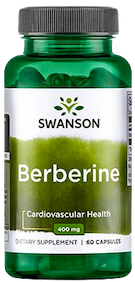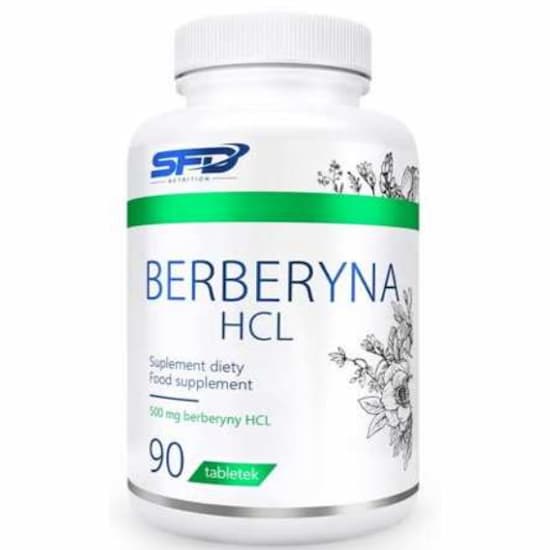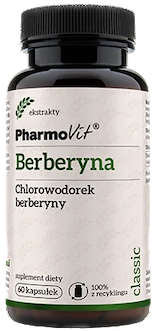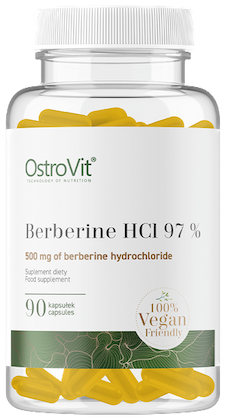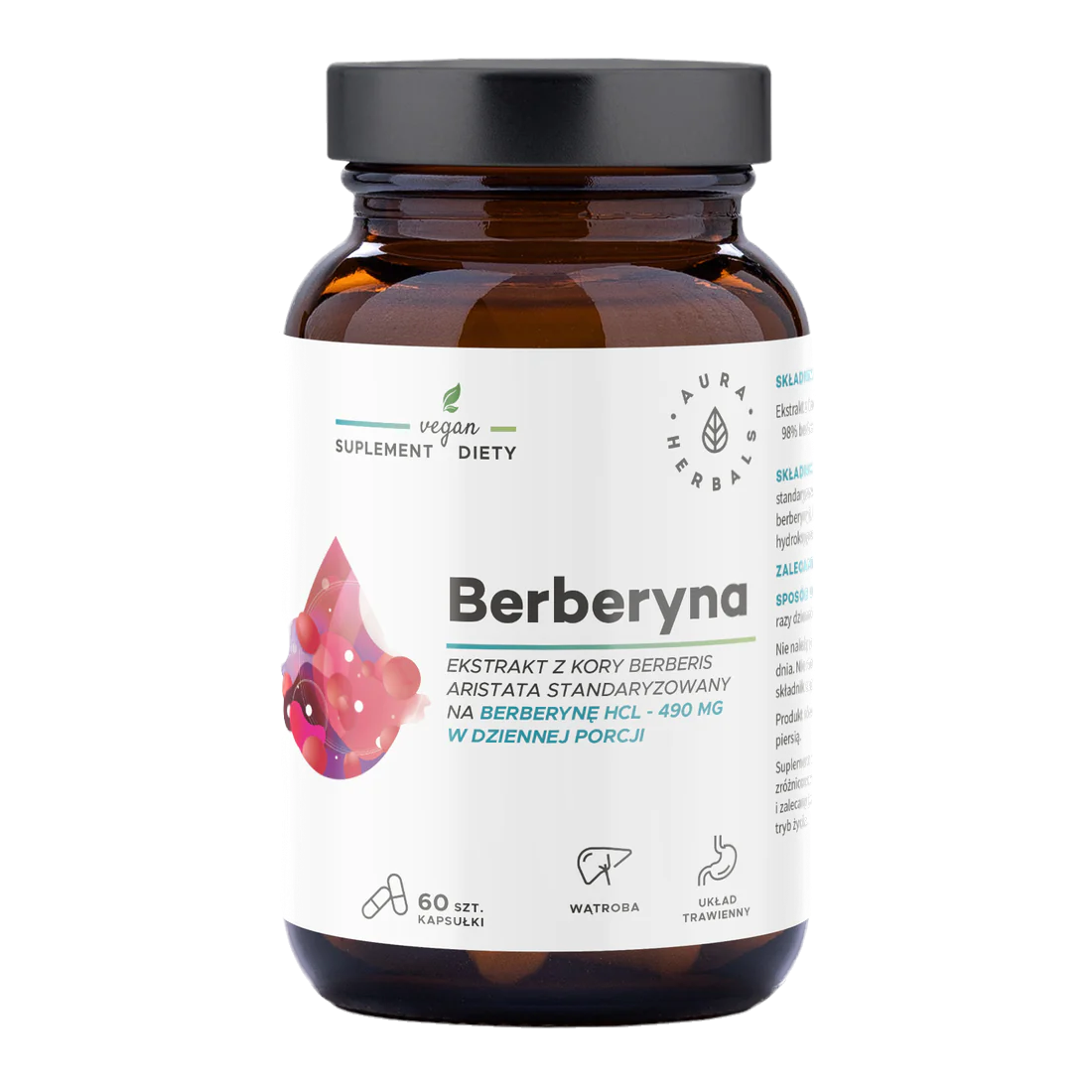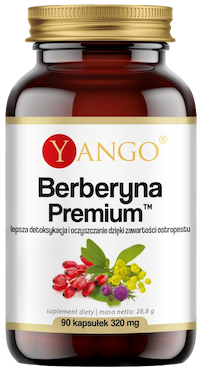Berberine - action, properties, side effects, dosage
Berberine is a bioactive plant-derived compound that has many health-promoting applications.


Learn more about our editorial process
.

Learn more about our editorial process
.

Learn more about our editorial process
.

Learn more about our editorial process
.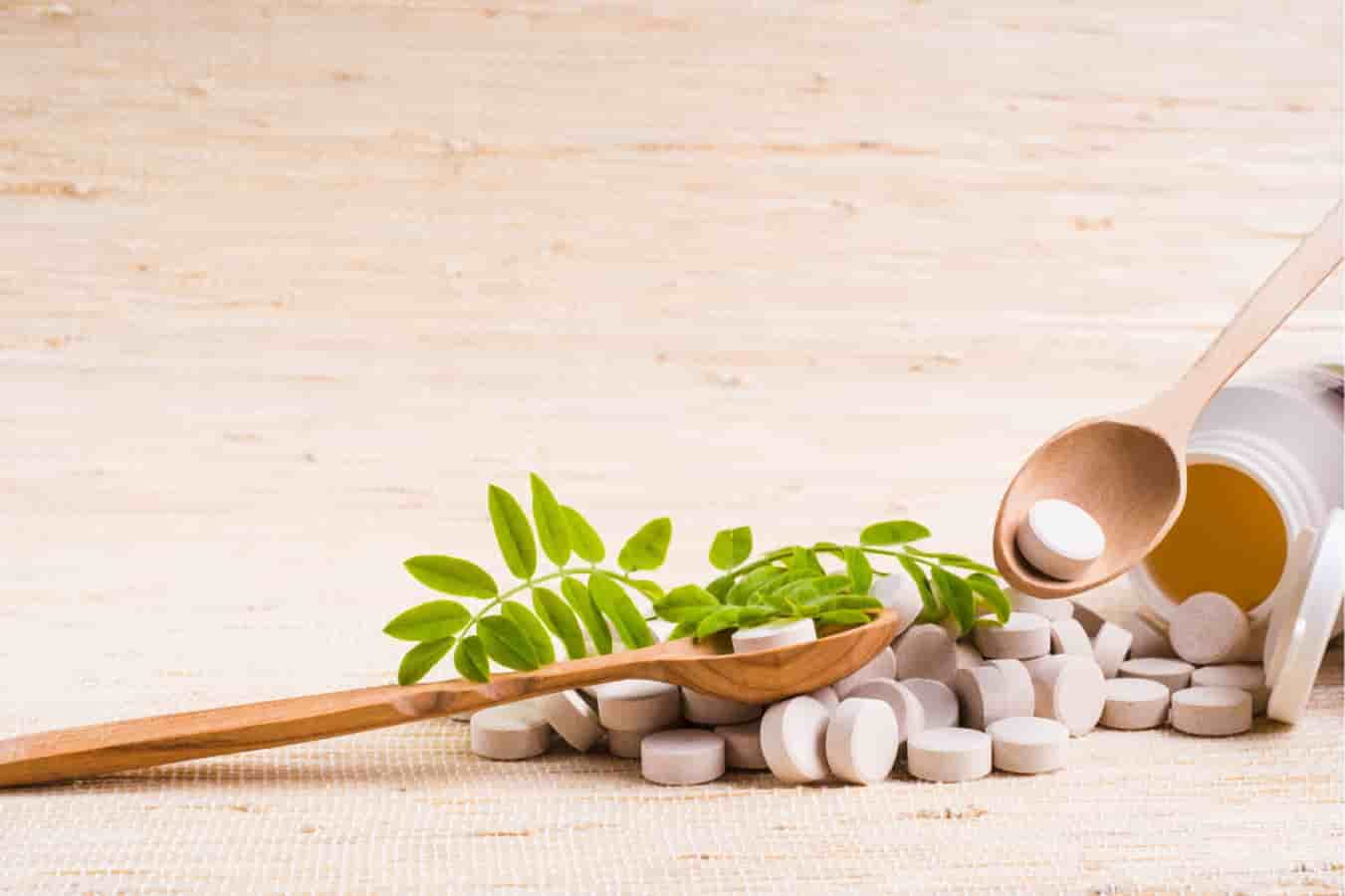
Why you can trust us
Articles on Natu.Care are written based on scientific research, data from government websites and other reliable sources. The texts are written in cooperation with doctors, nutritionists and other health and beauty experts. Articles are reviewed before publication and during significant updates.
.Learn more about our editorial process
.Information about advertisements
Content on Natu.Care may contain links to products from the sale of which we may receive a commission. When creating content, we adhere to high editorial standards and take care to be objective about the products discussed. The presence of affiliate links is not dictated by our partners, and we select the products we review ourselves completely independently.
.Learn more about our terms and Conditions
.Berberine seems to be the remedy for our overweight, cholesterol and even bowel problems. When you come across it in your search for the most comprehensive supplements, you may be under the impression that it will help "everything".
Wonderful plant? Are we setting off fireworks? Before you buy a berberine supplement, learn about its proven and probable properties. Together with nutritionist Aleksandra Cudna, we'll give you a handful of useful tips on how to take care of your health (with the help of berberine, but not only).
From this article you will learn:
- What is berberine .
- What its properties are and when it is worth supplementing .
- Whether using berberine will help you lose weight .
- Which berberine is the best .
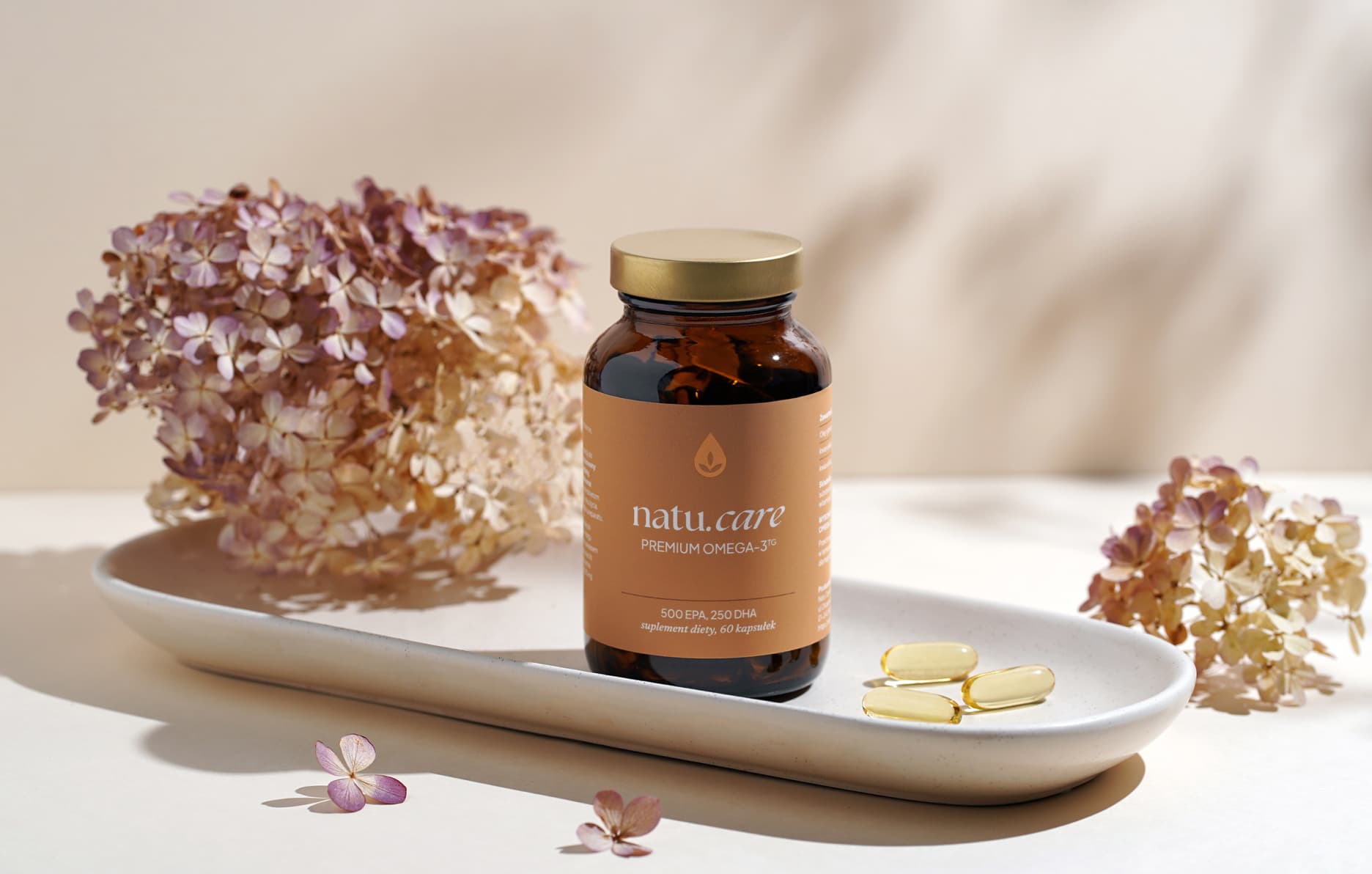
Sprawdź, za co pokochały go tysiące klientek Natu.Care Premium Omega-3ᵀᴳ -15% z kodem BLOG15
Natu.Care Omega-3ᵀᴳ Premium
Natu.Care Omega-3ᵀᴳ Premium dla zdrowia serca, mózgu i odporności. Najlepsza przyswajalność. Optymalna dawka 750 mg. Przebadana przez niezależne laboratorium.
Zobacz więcej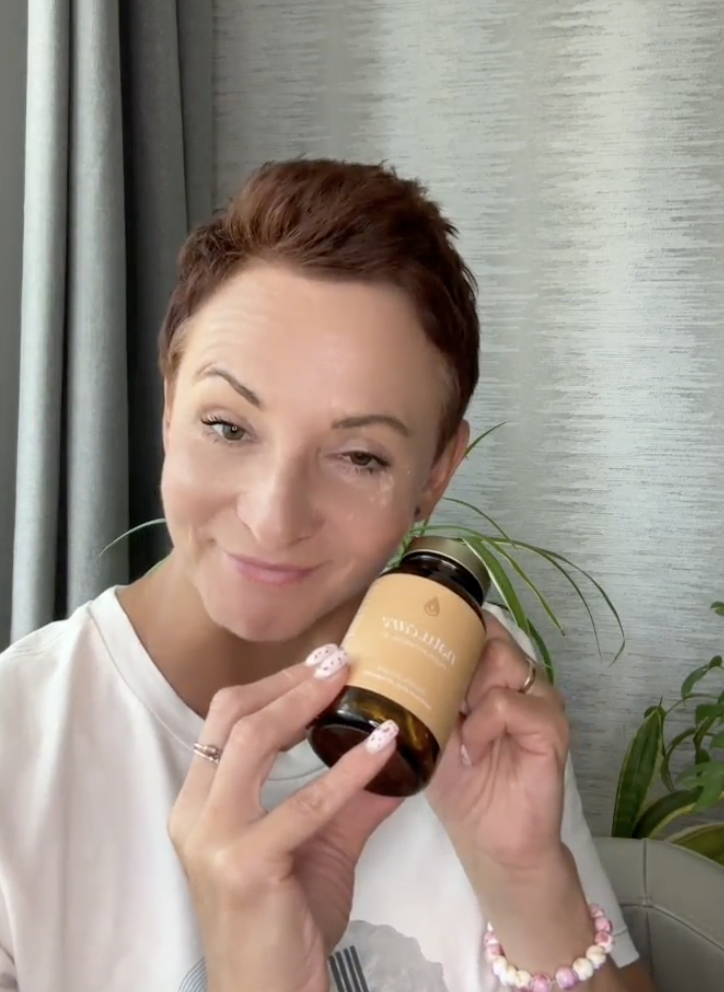
Produkt ma super skład, transparentną etykietę i co dla mnie jest ważne – małe kapsułki do połknięcia. Nie ma też nieprzyjemnego efektu odbijania rybą, który miałam spożywając inne produkty. Widzę znaczną poprawę odporności. Polecam!@Kasia P.
See also:
- Berberine for weight loss
- Berberine - contraindications
- Berberine - side effects
- Swanson Berberine - composition analysis
- Piperine
- Curcumin
- Curcuma in tablets
- Adaptogens
- Creatine
- Ashwagandha
- Indian ginseng
- Wild rose
- Black cumin oil
Berberine - what is it?
.
Berberine is a bioactive compound present in the roots, rhizomes, leaves, bark, twigs, and stems of several plant species, including barberry and common mahonia. It belongs to a class of compounds called alkaloids. They are plant-derived chemical compounds with a complex structureand.
.
They have strong physiological effects on human and animal organisms. Inside cells, the alkaloid binds to molecules and alters their function. This action is similar to how pharmaceutical drugs workand!
Berberine has already been used in traditional Chinese medicine and Ayurveda. Modern science confirms its impressive health benefits.
Did you know that...
.Alkaloids along with berberine also include caffeine, cocaine, codeine, morphine, quinine or atropine? They have been proven to have stimulant, antimicrobial, narcotic, psychotropic, sleeping, analgesic and local anaesthetic effectsand.
Are you interested in natural support for the body? Read articles about ashwaganda and passionflower.
Berberine - properties
.
Many dietary supplement manufacturers praise berberine. They particularly highlight its weight loss properties. I must cool your enthusiasm. There is still a lot of research ahead on berberine. Here are the already proven and probable properties of berberine.
Proven effects of berberineand:
- .
- lowers blood sugar levels in people with type II diabetes, .
- lowers levels of: total cholesterol, LDL cholesterol (so-called bad cholesterol) and triglycerides, .
- raises levels of HDL (so-called good cholesterol), .
- lowers apolipoprotein B by 13-15% (an important risk factor for cardiovascular disease).
Probable effects of berberine (more research needed)and:
- .
- may help reduce body weight by improving the fat-regulating hormones insulin, adiponectin and leptin, .
- can support the treatment of depression, .
- can have anti-inflammatory effects, .
- can alleviate symptoms and reduce the risk of death in patients with heart failure, .
- can promote immunity against viruses, bacteria and fungi, .
- may reduce fat accumulation in the liver, which may prevent non-alcoholic steatohepatitis liver disease, .
- may positively influence the gut microbiome, .
- may support the treatment of polycystic ovary syndrome with insulin resistance (PCOS), .
- can influence the reduction of skin complaints, such as those associated with atopic dermatitis, .
Some properties of berberine have attracted more interest than others. Internet users or patients in dieticians' offices often ask about weight-loss effects, effects on cholesterol and the microbiota (intestinal flora).
Berberine for weight loss - does it work?
.
If berberine were a miracle remedy for weight reduction, there would be only slim people walking the streets. Everyone would be planting barberries in the garden and serving themselves an appetiser capsule before every mealand.
There have been several studies to date on the effects of berberine on weight loss. Let's take a look at two of them.
Analysis of two scientific studies
.
One study conducted in the US involved 16 obese people of both sexes. Only 7 persevered to the end of the study. For 12 weeks, the subjects were given 500 mg of berberine three times a day. The results showed that the participants lost an average of 2.3 kg of body weight and 3.6% of their body fat. Blood lipid levels also fell (23% decrease in triglycerides and 12.2% decrease in cholesterol)and.
This sounds promising, butand:
- During the study, participants committed to a reduction diet (reducing kcal supply by approximately 20-25%), .
- they performed physical activity, mainly aerobic exercise, for 30 min once a day. .
What does this mean for the results of the study?
.
Not surprisingly, the study participants lost weight while in a caloric deficit, which is the basis of weight loss. Secondly, they increased their physical activity, which, combined with a reduction in calorie intake, produces the best weight loss results. Weight loss, activity and a low-calorie diet were also likely to affect the lipid profileand.
The second study conducted in China involved a group of 41 people (37 completed the study) with metabolic syndrome (so defined as co-morbidities that increase the risk of developing cardiovascular disease). The study lasted 12 weeks and participants received a dose of 300 mg berberine three times a dayand.
Finally, participants' BMI decreased from 31.5 to 27.4. They lost fat from their abdominal area and improved blood results .
This study, more qualitative than the first, may suggest an effect of berberine supplementation on weight loss. The weight loss may be related to the fact that berberine helps control insulin and other hormones that regulate fat cells.
Researchers, however, are reticent.
There is much research ahead on berberine and its effects on weight loss. If its positive effects are confirmed, it will be a helpful supplement in the fight against obesity.
>
Much has been written about the weight-loss properties of chromium, curcumin and piperine - read articles about them and see how much truth there is in it.
How to lose weight with berberine?
.
Remember - taking capsules is not enough to reduce the size of your clothes or get rid of a belly tyre. See for yourself (or rather your own fat tissue) how this supplement will work for you. I make no promises that you will lose weight from berberine alone. I do have a handful of proven tips from a nutritionist to help you lose weightand.
- The basis of weight reduction is calorie-deficit. This means that you eat fewer calories than you need. A small deficit, even of the order of 200 kcal, is sufficient for weight loss. This is, for example, one less candy bar a day or smaller meal portions. .
- Incorporate physical activity into your daily routine! You will definitely find it easier to reduce weight. Start with simple changes - walk more. It's an underrated but important activity. Get off earlier at the bus stop, park further away from your workplace, use the stairs instead of the lift. .
- Walking is not enough? Find a favourite sport and start training! Get that dusty tennis racket out of the cupboard, buy Nordic walking poles or learn to swim. Movement will help you reduce your weight, but it will also have a positive effect on your heart, immunity and mood, among other things. .
- Enrich your menu! Learn how to compose meals so that your diet is filling and rich in vitamins and minerals. Add vegetables and fruit to your meals. Try new flavours - have you had chocolate mousse with avocado? Or spicy leek cream soup? Look for new flavours! .
Take care of your regeneration! Sleep is important for the hormones hunger (ghrelin) and satiety (leptin). Studies have shown that ghrelin levels in people who neglect sleep are higher than those who get enough sleep.
 .
.
Aleksandra CudnaDietitian
.
Berberine for high cholesterol
.
We've held back the fireworks when it comes to berberine's weight-loss effects, but... we may be setting them off for another reason.
Research has proven that berberine lowers total cholesterol, bad cholesterol (LDL) and blood sugar levels. According to other studies, berberine also inhibits an enzyme called PCSK9. This leads to the removal of bad cholesterol from the bloodstreamand.
How to lower cholesterol naturally
.
Berberine will help you if you are struggling with high cholesterol. However, remember that you will get the best results if you implement a few more practical tips into your daily life. See what nutritionist Aleksandra Cudna recommends.
- Decrease the amount of saturated fats in your diet. Avoid fatty cheeses, cream, red meat, processed foods (e.g. sausages, sausages). Choose healthy fats, lean meats and try to eat a fruit or vegetable with every meal. .
- Climittrans fats, which you are most likely to find in candy bars, waffles, cakes, fast food and other processed foods.
- Increase the amount of fibre in your diet - eat fruit and vegetables, as well as whole-grain breads, pasta and coarse cereals. Enrich your diet with sources of soluble fibre, which binds cholesterol in the gut, such as flaxseed, plantain or pulses (chickpeas, broad beans, beans, peas). .
- Incorporate sources of plant sterols and stanols into your diet, e.g. margarines (modern margarines do not have trans fats because the technology to produce them has changed), spreads, yoghurts. .
- Consume more unsaturated fats! Excellent sources include: oily marine fish (salmon, mackerel, sardines), nuts (walnuts, almonds), cold-applied vegetable oils (olive oil, rapeseed oil, flaxseed oil), avocados, flaxseed.
Helpful in lowering cholesterol are vitamin B3 (niacin), vitamin C, vitamin E, vitamin A. Also important are omega acids - look out for products rich in these compounds..
 .
.
Aleksandra CudnaDietitian
.
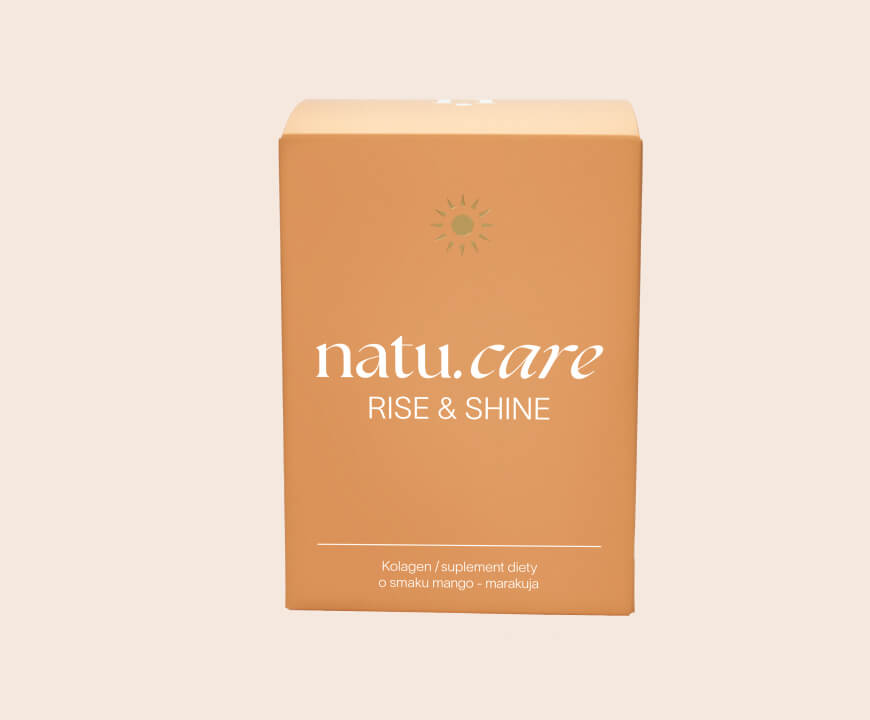
Rise&Shine: Collagen (5000 mg) in Mango-Maracuja flavour
Rise&Shine is collagen (5000 mg) in Mango-Maracuja flavour. Proven formulation, great bioavailability and refreshing taste.
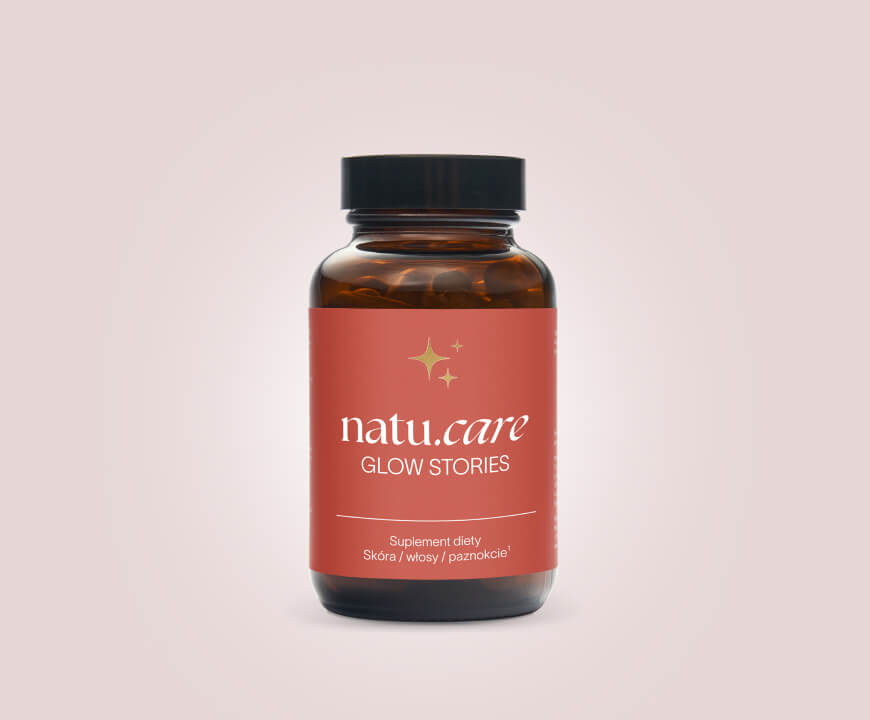
Glow Stories - for healthy skin, hair and nails
.Product with high-quality folic acid Quatrefolic®, bamboo shoot extract and ingredients that have a positive effect on skin, hair and nails.
Berberine and the effect on the gut microbiome
.
Several clinical studies have shown that berberine - by regulating the gut microbiome - can be used to treat various diseases. The gut microbiome is the totality of bacteria residing in the human gutand.
In recent years, scientists have been looking extensively at the links between the gut microbiome and the occurrence of specific disease entities. It is known that the quality of our microbiome is important, and this depends on our lifestyle, diet and even genesand.
Berberine helps to maintain the health of our gut microbiome. You can also support your body naturally. Here's what a nutritionist recommends:
- Include fermented dairy products in your diet, e.g. natural yoghurts (preferably with information on the label as to what strains of bacteria they contain), kefirs, buttermilk, acidophilus milk.
- Include a range of foods in your diet.
- Care for a supply of fibre - it is food for probiotic bacteria, so their population can grow (good for us!). .
- Consume fermented foods, such as pickles, sauerkraut, beetroot sourdough and other pickled vegetables. Fermented foods contain significant amounts of lactic fermentation bacteria, which are beneficial to our bodies and support immunity. .
Berberine or metmorphine?
.
Metmorphine is a synthetic drug used to treat type II diabetes, reducing blood glucose levels. In studies, berberine has shown similar effects to metmorphine - hence many people wonder which is betterand.
Berberine compared to metmorphineand:
.
- .
- causes fewer side effects, .
- does not affect thyroid hormone (TSH) levels, .
- does not reduce testosterone levels, .
- does not hinder muscle mass gain, .
Metmorphine and berberine exhibit similar properties, but differ significantly. Metmorphine is a synthetic substance, while berberine is of plant origin. The substance extracted from berberine has potentially fewer side effects, but remember that it is a dietary supplement. We have no guarantee that it will work, unlike a drug that undergoes rigorous testingand.
Any discontinuation or change in prescription medication should be consulted with a healthcare practitioner. The doctor will assess the safety of their use based on the patient's individual case. It is not possible to determine on your own what dose of a supplement will be equivalent to a dose of a drug. It is advisable to familiarise yourself with the contraindications and drug interactions of berberine so that you do not harm yourself..
 .
.
Aleksandra CudnaDietitian
.
Contraindications to the use of berberine
.
Despite the fact that berberine is a plant-derived substance, not everyone can use it.
Contraindications to the use of berberine include hypersensitivity to berberine, pregnancy, breastfeeding, age under 18, liver damage, and use of the following medications: blood sugar lowering, blood pressure lowering, immunosuppressant, sedativeand.
.
If in any doubt - ask your doctor to avoid unpleasant side effects or dangerous interactions.
See also:
Side effects of berberine use
.
Possible side effects of berberine use include abdominal pain, nausea, diarrhoea, constipation, bloating. Unpleasant side effects usually affect people who use excessive amounts of berberine or take it with medications that interact with itand.
Persons on permanent medication must consult berberine supplementation with their healthcare provider. In this way, they can avoid dangerous interactions - e.g. berberine with sedative medications.
Berberine dosage
.
Berberine dosage should be tailored to individual needs and expectations. The usual dose used is 500 mg 3 times a day. The dosage should not exceed 1500 mg of berberine per dayand. It is recommended to take berberine for 8-12 weeks.
What is the best time to take berberine?
.
Research indicates that it is best to consume berberine before meals, maintaining equal intervals between supplementation. This is, for example, consuming it before breakfast, lunch and dinner, every four hours or soand.
Berberine has a half-life of several hours, so it is necessary to spread the dose evenly to achieve stable blood levels.
Berberine - when effects?
.
The effects of berberine can be observed after approximately 3 months supplementation of a 500 mg portion in 2-3 capsules per day. This is what scientific studiesand suggest, and this is how long it takes for parameters (e.g. sugar or cholesterol levels) to normalise.
Before starting supplementation, perform tests (e.g. lipidogram, sugar levels or other tests that relate to your health problem) and compare the results after 3 months.
Which berberine is best?
.
There are dietary supplements containing berberine available on the market. The most common forms are sulphate (better absorbed) and hydrochloride (cheaper for the manufacturer, less absorbed). We have a choice of tablets, capsules and also teas. Berberine is often found in a formulation together with, for example, chromium, curcumin or cinnamonand.
If you are looking for a good berberine product, look for berberine HCL (sulphate) and pay attention to the amount of pure berberine per 100 grams of the preparation. Additives in the form of other active ingredients are a secondary consideration. Remember, however, that these are dietary supplements and not medicinesand.
Berberine Swanson HCL
Product description
The preparation contains berberine, a plant active substance whichós positive effect on the regulation of sugar-insulin metabolism and lowers the concentration of „bad” cholesterol, increasing the concentration of „good” cholesterol. It can also aid weight loss.
.Pros and cons
The preparation contains berberine, a plant active substance whichós positive effect on the regulation of sugar-insulin metabolism and lowers the concentration of „bad” cholesterol, increasing the concentration of „good” cholesterol. It can also aid weight loss.
.Additional information
The preparation contains berberine, a plant active substance whichós positive effect on the regulation of sugar-insulin metabolism and lowers the concentration of „bad” cholesterol, increasing the concentration of „good” cholesterol. It can also aid weight loss.
.Expert opinion
The preparation contains berberine, a plant active substance whichós positive effect on the regulation of sugar-insulin metabolism and lowers the concentration of „bad” cholesterol, increasing the concentration of „good” cholesterol. It can also aid weight loss.
.Product description
The main ingredient in the preparation is berberine in the form of a standardised extract. It has anti-inflammatory and antioxidant effects and lowers blood lipid levels.
Expert opinion
The preparation contains Indian barberry extract – standardised for berberine hydrochloride. This substance exhibits anti-inflammatory, antioxidant, antimicrobial, blood lipid-lowering and hypoglycaemic effects.

Ilona Krzak master of pharmacy
Additional information
<p>Usually, large fluctuations in blood glucose and abnormal glucose utilisation are the causes of weight gain. A definite advantage of the preparation is the standardisation of the extract. This way, you know how much of the active substance you are getting. There are also reports that <a href=‘https://natu.care/pl/rosliny/berberyna-na-odchudzanie’>berberine</a> is helpful during the pharmacotherapy of depression.</p>
<p><strong>Learn more about berberine and its properties in Nina Wawryszuk's article: </strong><a href="https://natu.care/pl/rosliny/berberyna"><strong>Berberyna – działanie, właściwości, skutki uboczne, dawkowanie</strong></a></p>
Product description
Berberine supports sugar and insulin metabolism, the cardiovascular system and liver function. It can promote weight loss, protect the liver and positively influence the gut microbiome.
Pros and cons
Berberine supports sugar and insulin metabolism, the cardiovascular system and liver function. It can promote weight loss, protect the liver and positively influence the gut microbiome.
Additional information
Berberine supports sugar and insulin metabolism, the cardiovascular system and liver function. It can promote weight loss, protect the liver and positively influence the gut microbiome.
User review
Berberine supports sugar and insulin metabolism, the cardiovascular system and liver function. It can promote weight loss, protect the liver and positively influence the gut microbiome.
Product description
Berberine supports sugar and insulin metabolism, the cardiovascular system and liver function. It may support weight loss, protect the liver and have a positive effect on the gut microbiome.
Pros and cons
Berberine supports sugar and insulin metabolism, the cardiovascular system and liver function. It may support weight loss, protect the liver and have a positive effect on the gut microbiome.
Additional information
Berberine supports sugar and insulin metabolism, the cardiovascular system and liver function. It may support weight loss, protect the liver and have a positive effect on the gut microbiome.
Berberine supports sugar and insulin metabolism, the cardiovascular system and liver function. It may support weight loss, protect the liver and have a positive effect on the gut microbiome.
Product description
Berberine supports sugar and insulin metabolism, the cardiovascular system and liver function. It may promote weight loss, protect the liver and positively influence the gut microbiome.
Pros and cons
Berberine supports sugar and insulin metabolism, the cardiovascular system and liver function. It may promote weight loss, protect the liver and positively influence the gut microbiome.
Additional information
Berberine supports sugar and insulin metabolism, the cardiovascular system and liver function. It may promote weight loss, protect the liver and positively influence the gut microbiome.
Product description
A dietary supplement with berberine, whichóra has a positive effect on sugar-insulin balance and reduces the risk of heart disease. It can support the weight loss process.
Pros and cons
A dietary supplement with berberine, whichóra has a positive effect on sugar-insulin balance and reduces the risk of heart disease. It can support the weight loss process.
Additional information
A dietary supplement with berberine, whichóra has a positive effect on sugar-insulin balance and reduces the risk of heart disease. It can support the weight loss process.
A dietary supplement with berberine, whichóra has a positive effect on sugar-insulin balance and reduces the risk of heart disease. It can support the weight loss process.
.
.
See also articles on health:
.
- Thyroid testing
- Blood tests
- Cervical cancer .
- Liver
- Fatty (oily) liver
- Hepatic tests .
- How to take care of your mental health
Every now and then a dietary supplement comes on the market advertised as a cure (sic!) for our greatest ills. Before buying berberine, read carefully what the scientific research suggests and think about changes to your diet and lifestyle.
What other space-age and world-changing supplements do you associate with? Or have you used any? Leave me a comment below the post, I'm looking for topics and enthusiasm to cool down.
Summary
.
Remember:
- Berberine is an alkaloid that exhibits potent physiological effects on human and animal organisms.
- Research suggests that berberine is effective in lowering blood sugar levels in people with type II diabetes, lowering total cholesterol, LDL cholesterol and triglycerides, raising HDL cholesterol and reducing the risk of cardiovascular disease.
- Berberine is an alkaloid that has been shown to have a significant effect on blood sugar levels in humans and animals.
- Has the potential to aid weight loss, however, further research is needed. .
- May have a positive effect on the quality of the intestinal flora, which has an important function in the prevention of many diseases.
- First and foremost, a calorie deficit and physical activity are needed for fat loss. .
- Through a nutritious diet, we can influence the reduction of bad cholesterol. .
FAQ
.Does one lose weight after berberine?
You don't lose weight from berberine, you lose weight from a calorie deficit - berberine can only support weight loss. Because of its effect on the fat-regulating hormones insulin, adiponectin and leptin, it is helpful for weight loss, but taking capsules alone will not produce the desired results. Weight loss is best achieved by combining a suitable diet with physical activity.
Does berberine reduce appetite?
.Yes, berberine can reduce appetite by regulating leptin, the hormone that regulates appetite growth. Remember that appetite is also affected by the quality of our sleep and a properly composed diet. Simply taking berberine capsules will not suppress your appetite if you are sleep deprived or eating poorly nutritionally.
After how long does berberine take effect?
The first effects of berberine depend on the purpose of use - weight loss can be seen in as little as 2-4 weeks, and an improvement in lipid profile after about 3 months of regular supplementation together with the implementation of healthy dietary habits and physical activity.
When is it best to take berberine?
.Berberine is best taken before or during a meal to ensure good absorption into the body. This is how berberine has been administered in scientific studies.
Can children take berberine?
.The effects and side effects of berberine use in children are unknown. Consider why you want to give berberine to your child. Check the article for tips from a nutritionist (e.g. if your child is overweight or has cholesterol problems), which will have many benefits for your child's health.
Can berberine be combined with metmorphine?
.No, berberine cannot be combined with methmorphine. If you are considering switching from methmorphine to berberine, please consult your doctor so that you do not harm yourself. Remember that methmorphine is a drug and berberine is a dietary supplement.
Can berberine be combined with chromium?
.Yes, you can take berberine with chromium. However, before combining these two substances, consult your doctor. Both substances have an effect on our bodies and the purpose of supplementation, dosage and possible contraindications should be established.
In which products is berberine found?
.Berberine is of plant origin. It is found in the leaves, roots, stems, twigs and rhizomes of several plant species (e.g. barberry, common mahonia). Products containing berberine or its extract can be found in dietary supplements and herbal teas.
How long can berberine be used?
.There is no definite answer to this question, as it is a very individual issue. Clinical studies on berberine with humans or animals have lasted from a few weeks to two years. Folk medicine also has well-documented medicinal uses for berberine.
However, more long-term studies on its safety are needed. If in doubt, it is worth consulting your doctor and getting regular checkups to prevent negative side effects that you may not yet be aware of.
The following is a good way to address this issue.
.
Sources
See all
.Andoh, T., Yoshihisa, Y., Rehman, M. U., Tabuchi, Y., & Shimizu, T. (2021). Berberine induces anti-atopic dermatitis effects through the downregulation of cutaneous EIF3F and MALT1 in NC/Nga mice with atopy-like dermatitis. Biochemical Pharmacology, 185, 114439. https://doi.org/10.1016/j.bcp.2021.114439
Cameron, J., Ranheim, T., Kulseth, M. A., Leren, T. P., & Berge, K. E. (2008). Berberine decreases PCSK9 expression in HepG2 cells. Atherosclerosis, 201(2), 266-273. https://doi.org/10.1016/j.atherosclerosis.2008.02.004
Čerňáková, M., & Košťálová, D. (2002). Antimicrobial activity of berberine-A constituent ofMahonia aquifolium. Folia Microbiologica, 47(4), 375-378. https://doi.org/10.1007/BF02818693
Chang, W., Chen, L., & Hatch, G. M. (2015). Berberine as a therapy for type 2 diabetes and its complications: From mechanism of action to clinical studies. Biochemistry and Cell Biology, 93(5), 479-486. https://doi.org/10.1139/bcb-2014-0107
Cicero, A. F. G., Rovati, L. C., & Setnikar, I. (2007). Eulipidemic Effects of Berberine Administered Alone or in Combination with Other Natural Cholesterol-lowering Agents. Arzneimittelforschung, 57(01), 26–30. https://doi.org/10.1055/s-0031-1296582
Dhamgaye, S., Devaux, F., Vandeputte, P., Khandelwal, N. K., Sanglard, D., Mukhopadhyay, G., & Prasad, R. (2014). Molecular Mechanisms of Action of Herbal Antifungal Alkaloid Berberine, in Candida albicans. PLOS ONE, 9(8), e104554. https://doi.org/10.1371/journal.pone.0104554
Dong, H., Zhao, Y., Zhao, L., & Lu, F. (2013). The Effects of Berberine on Blood Lipids: A Systemic Review and Meta-Analysis of Randomized Controlled Trials. Planta Medica, 79(06), 437-446. https://doi.org/10.1055/s-0032-1328321
H, D., N, W., L, Z., & F, L. (2012). Berberine in the treatment of type 2 diabetes mellitus: A systemic review and meta-analysis. Evidence-Based Complementary and Alternative Medicine : ECAM, 2012. https://doi.org/10.1155/2012/591654
Hu, Y., Ehli, E. A., Kittelsrud, J., Ronan, P. J., Munger, K., Downey, T., Bohlen, K., Callahan, L., Munson, V., Jahnke, M., Marshall, L. L., Nelson, K., Huizenga, P., Hansen, R., Soundy, T. J., & Davies, G. E. (2012). Lipid-lowering effect of berberine in human subjects and rats. Phytomedicine, 19(10), 861-867. https://doi.org/10.1016/j.phymed.2012.05.009
Imenshahidi, M., & Hosseinzadeh, H. (2019). Berberine and barberry (Berberis vulgaris): A clinical review. Phytotherapy Research, 33(3), 504-523. https://doi.org/10.1002/ptr.6252
Lan, J., Zhao, Y., Dong, F., Yan, Z., Zheng, W., Fan, J., & Sun, G. (2015). Meta-analysis of the effect and safety of berberine in the treatment of type 2 diabetes mellitus, hyperlipemia and hypertension. Journal of Ethnopharmacology, 161, 69-81. https://doi.org/10.1016/j.jep.2014.09.049
Li, M.-F., Zhou, X.-M., & Li, X.-L. (2018). The Effect of Berberine on Polycystic Ovary Syndrome Patients with Insulin Resistance (PCOS-IR): A Meta-Analysis and Systematic Review. Evidence-Based Complementary and Alternative Medicine, 2018, e2532935. https://doi.org/10.1155/2018/2532935
Liu, Y., Zhang, L., Song, H., & Ji, G. (2013). Update on Berberine in Nonalcoholic Fatty Liver Disease. Evidence-Based Complementary and Alternative Medicine, 2013, e308134. https://doi.org/10.1155/2013/308134
.Metformin: Uses, Dosage, Side Effects, Warnings. (n.d.). Drugs.Com. Retrieved 20 March 2023, from https://www.drugs.com/metformin.html
Taheri, S., Lin, L., Austin, D., Young, T., & Mignot, E. (2004). Short Sleep Duration Is Associated with Reduced Leptin, Elevated Ghrelin, and Increased Body Mass Index. PLOS Medicine, 1(3), e62. https://doi.org/10.1371/journal.pmed.0010062
Wang, H., Zhu, C., Ying, Y., Luo, L., Huang, D., & Luo, Z. (2018). Metformin and berberine, two versatile drugs in treatment of common metabolic diseases. Oncotarget, 9(11), 10135. https://doi.org/10.18632/oncotarget.20807
Wu, Y., Li, J., Kim, Y., Wu, J., Wang, Q., & Hao, Y. (2011). In vivo and in vitro antiviral effects of berberine on influenza virus. Chinese Journal of Integrative Medicine, 17(6), 444-452. https://doi.org/10.1007/s11655-011-0640-3
Yang, J., Yin, J., Gao, H., Xu, L., Wang, Y., Xu, L., & Li, M. (2012). Berberine Improves Insulin Sensitivity by Inhibiting Fat Store and Adjusting Adipokines Profile in Human Preadipocytes and Metabolic Syndrome Patients. Evidence-Based Complementary and Alternative Medicine : ECAM, 2012. https://doi.org/10.1155/2012/363845
Zeng, X.-H., Zeng, X.-J., & Li, Y.-Y. (2003). Efficacy and safety of berberine for congestive heart failure secondary to ischemic or idiopathic dilated cardiomyopathy. American Journal of Cardiology, 92(2), 173-176. https://doi.org/10.1016/S0002-9149(03)00533-2
Zhang, L., Wu, X., Yang, R., Chen, F., Liao, Y., Zhu, Z., Wu, Z., Sun, X., & Wang, L. (2021). Effects of Berberine on the Gastrointestinal Microbiota. Frontiers in Cellular and Infection Microbiology, 10. https://www.frontiersin.org/articles/10.3389/fcimb.2020.588517
..
Editorials
Meet the team


Editor
Graduate of Journalism and Artes Liberales at the University of Warsaw. Since 2017, he has been working with the biggest portals in Poland and abroad as an editor. Previously worked for 3 years in one of the leading pharmaceutical companies - he knows the health and beauty industry inside out. In his free time, he most enjoys playing tennis or skiing.
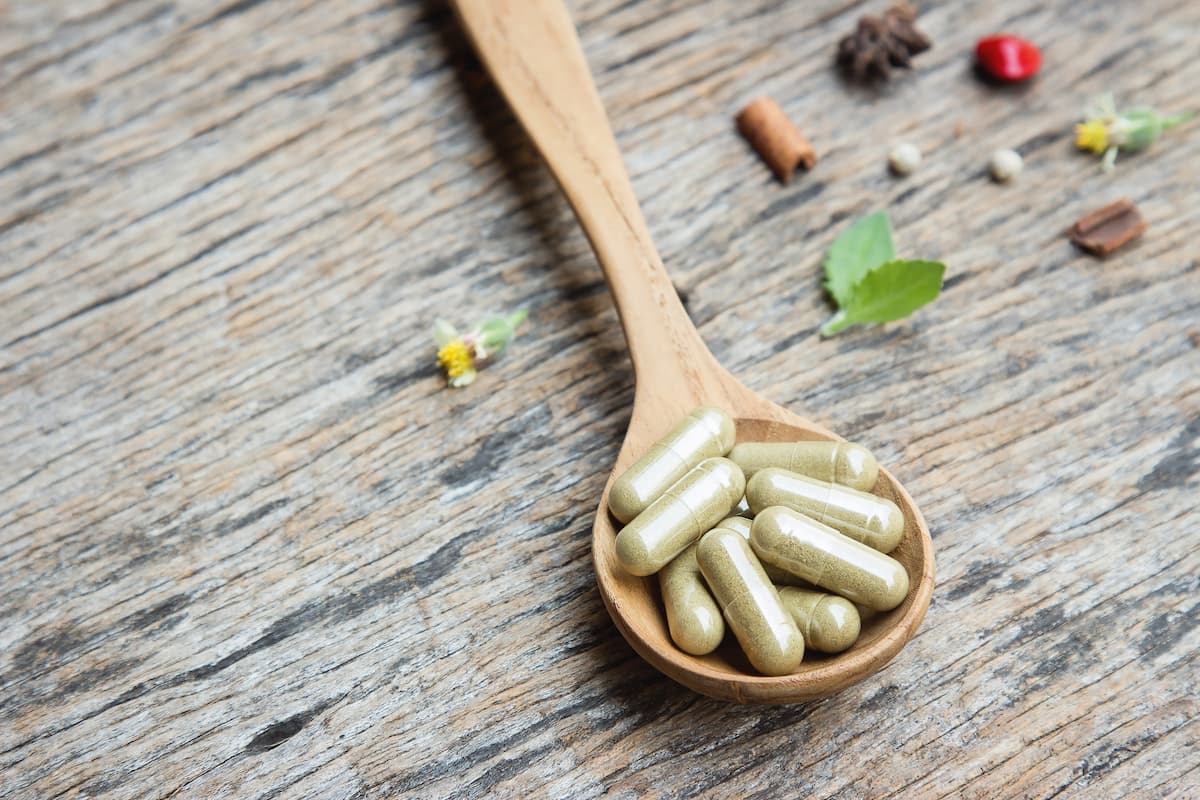
Ashwagandha affects thyroid hormone levels. Find out if you can use it.
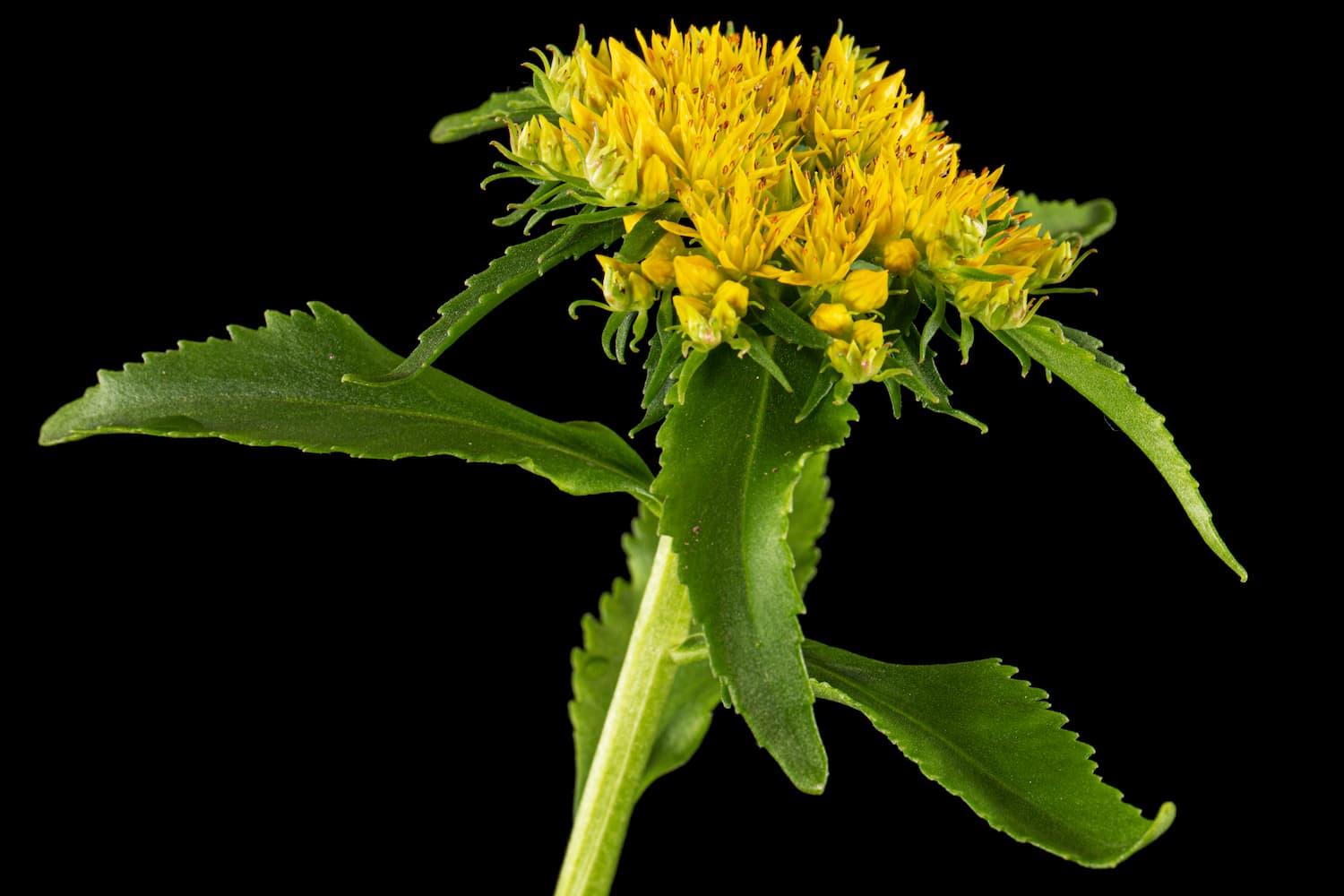
See how mountain pintail can affect your wellbeing.

Check out the opinions of doctors and other professionals about ashwagandha. Also find out what people on the forum think about it.
